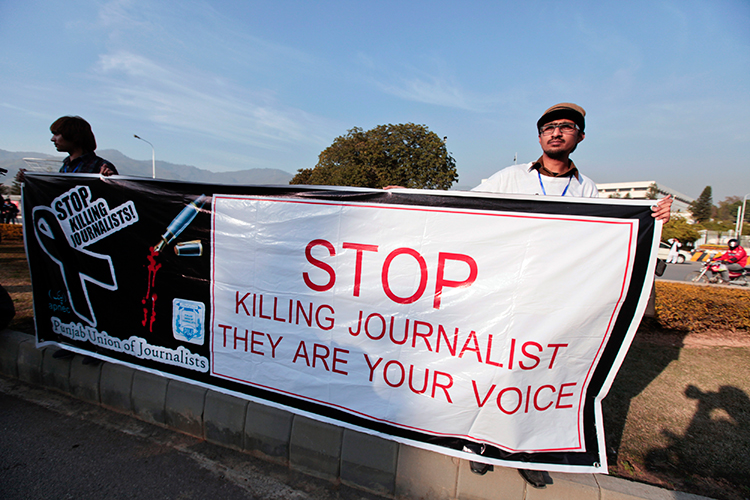June 15, 2017, New York–Pakistani authorities should swiftly and credibly investigate the murder of Bakhsheesh Elahi and swiftly bring all those responsible to justice, the Committee to Protect Journalists said today. Elahi, the Haripur bureau chief for the daily newspaper K2, was fatally shot in Haripur, about 80km (50 miles) north of Islamabad, on June 11, according to police, news reports, and his employer.
Elahi was on his way to work when unknown assailants on a motorcycle shot him repeatedly, Shuraiz Khan, of the Haripur police department, told CPJ. The Pakistani daily newspaper Dawn reported that Elahi sustained bullets to his head, neck, and chest. The journalist was alone when he was killed, and no one else was injured, Khan said, adding that he could not give any details regarding potential motives or suspects in an ongoing investigation.
“We call on Pakistani authorities to leave no stone unturned in their investigation into the murder of K2 journalist Bakhseesh Elahi, and to consider his journalism as a possible motive,” CPJ Deputy Executive Director Robert Mahoney said. “Pakistani authorities should show that journalists cannot be killed with impunity.”
A K2 journalist who gave his name only as Zakirullah told CPJ that Elahi, as the Haripur bureau chief, covered general news, and that he was unaware of any particular story that might have provoked his murder. He said that journalists were in danger in Pakistan, but that he could not speculate as to the killers’ motives. Elahi had worked at K2 for only one month before his murder, and was a reporter for the Aaj media group’s Haripur bureau before joining K2, Dawn reported.
Pakistan is one of the deadliest countries for journalists, with 33 murdered there in direct retaliation for their work since 1992, according to CPJ research.
